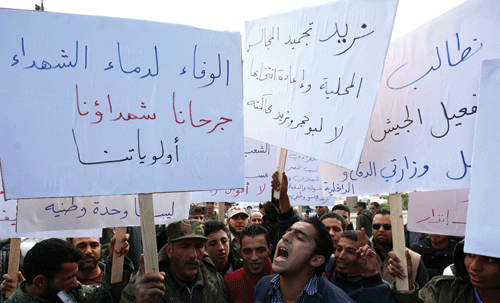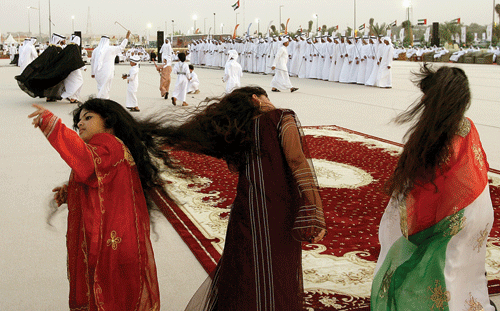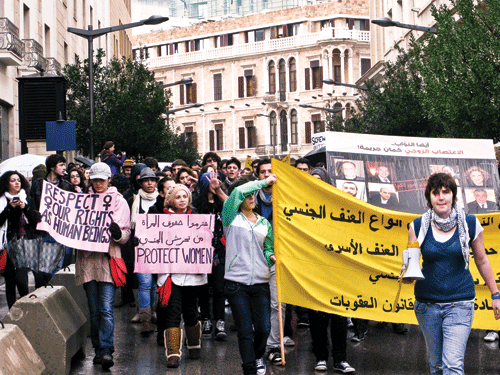When I met Libya’s interim Prime Minister Abdurrahim al-Keib late last year in the plush Tripoli offices once occupied by Muammar Qadhafi’s loyal ministers, he was in an optimistic mood. After spending most of the last four decades in exile, the 61-year-old electrical engineering professor was back in Tripoli, and charged with readying his country for its democratic rebirth.
He was eager for elections to happen as soon as possible. After 42 years of Qadhafi dictatorship, he said, “Libya will respond well to good governance.” But whether he will get the chance to test that claim is doubtful to say the least. The challenge facing Keib and his cabinet of technocrats and former rebel commanders is enormous, and it is difficult to see how Libya can meet its self-imposed timetable for democratic transition. On top of that, there are now serious questions being asked of the authority and credibility of the government itself and the National Transitional Council (NTC) that appointed it. The plans for democratic transition looked ambitious from the outset. Unlike its neighbors Tunisia and Egypt, Libya has no experience of national elections — not even the sham variety used by Hosni Mubarak and Zine el-Abidine Ben Ali to give at least the veneer of legitimacy to their regimes.
According to a timetable set out by the NTC, the first national vote, to elect a constitution-writing body, must happen before the end of June. That leaves just a few months in which Libya’s democratic institutions — non-existent under Qadhafi rule — must be built completely from scratch. New election laws need to be written, election officials trained and decisions on constituencies and voting structures made.
After decades in a political vacuum, Libyans themselves also need time to adjust. There is little sign of political parties being formed and little awareness that elections are even planned. Meanwhile the government has its hands full with other concerns. There is growing criticism of the NTC on several fronts, from its lack of transparency to its inability to provide even basic services. In January, protests in Benghazi at the NTC’s perceived shortcomings even saw the resignation of deputy chairman Abdel-Hafidh Ghoga.
Libya’s problems are numerous. Its recovery from eight months of bloody civil war will require national reconciliation. With assets still frozen and oil production below the pre-war levels, the economy is struggling. There is no functioning judiciary, meaning that thousands of Qadhafi fighters still languish in unofficial prisons dotted around the country, raising concerns of human rights abuses. But the greatest concern of all is security. In January the former Qadhafi stronghold of Bani Walid slipped out of the government’s control when local fighters attacked and expelled NTC-aligned militias. With no functioning army or police force, security is in the hands of dozens of regional militias who have carved up parts of the country and even the capital Tripoli. The country is divided along regional lines, and rival militias frequently clash over control of borders or airports. Keib says national voting can go ahead unless the security situation becomes “very dangerous”; in today’s Libya that likely means elections will take place even if the militias have not laid down their weapons or accepted the authority of the central government. That sounds dangerous in itself. It is uncertain whether militias will attempt to use their power to influence the voting or the constitution writing, and as Khalifa Shakreen, a professor of political science at Tripoli University put it: “We can’t write a constitution with a gun to our heads.”
The authorities are reluctant to delay the democratic transition, with good reasons: First, any delay will leave them open to accusations that they are trying to make a grab for power, as has happened in Egypt. Second, any extended period without a legitimate elected government could create a power vacuum that rival militia leaders may be only too happy to fill.
Those risks are real. But the alternative is to run elections before the country is ready. If that fails it could be a disaster for democracy in Libya before it has even begun. For now, Keib’s strategy is to muddle through, hold the elections on time and hope for the best. That may test his optimism to its limits.












